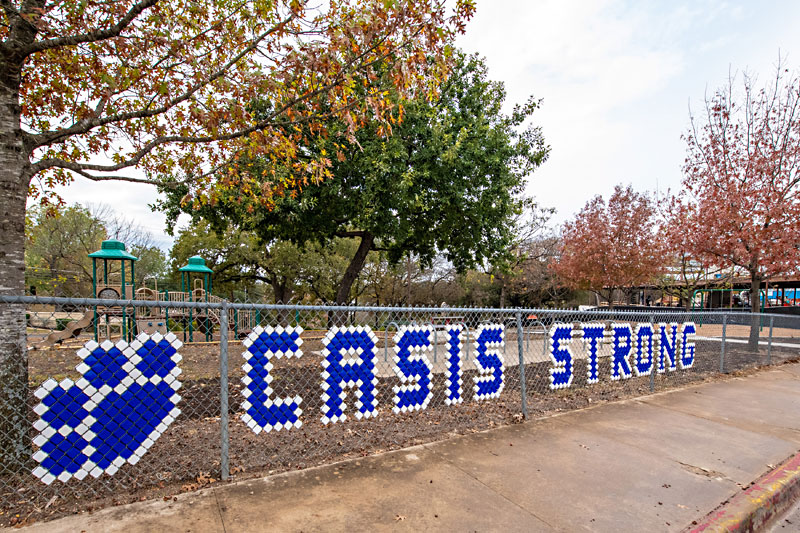AISD Blocks Parent-Funded Posts at Upscale Schools
New equity formula ends PTA pay
By Clara Ence Morse, Fri., May 28, 2021

Beginning this fall, Austin ISD parent-teacher associations will no longer be allowed to fund staff positions at their schools, a decision met with mixed reactions across the broadly diverse urban school district. Some campus communities felt bruised by the district's haphazard communication and speedy timeline for change at their schools, while other stakeholders were incredulous that AISD ever allowed such a practice in the first place.
The decision impacts 31 staff positions at a dozen elementary schools, almost all of which are whiter and wealthier than the district as a whole. A May 3 letter to principals from district leaders outlining the changes, months after AISD put in place new equity formulas for staffing campuses, sent employees unexpectedly scrambling to apply for new jobs and left parents wondering what to do next. As Chief of Schools Dr. Anthony Mays wrote in the memo, "The issue is not so much a legal matter as it is an ethical one – equitable schools." The district has picked up a handful of the positions and is still weighing whether to do so with others; PTA funding of afterschool programs is not affected.
"It's never easy to operationalize equity, because it causes us to have to look at the entire system, but we have to have the ability to make those adjustments even when they're not popular," AISD Superintendent Dr. Stephanie Elizalde said in an article published on the AISD website May 21. "We exist to serve the public. The minute we become enablers of inequities, we cease to be a public institution."
At affluent schools, PTAs have consistently provided financial support for student enrichment resources, including extra staff positions. Reading and math specialists were crucial in helping Lauren Ward's children succeed at Doss Elementary in Northwest Austin, and she raised money as an active member of the PTA to help pay them.
For Ward's oldest son, who has dyslexia, Doss' reading program "really changed his life." The position will be cut this fall, and Ward worries about other students missing out. "If the district could show me their plan for making sure that every student has access to everything that they need, that'd be great," she said. "But you don't just say, 'We're not doing what we've done before because it feels inequitable,' without a plan in place to address it, without some conversations about other solutions."
Affluent Central and West Austin PTAs can generate plenty of funds to pay for "other solutions." Publicly available tax records for 11 of the PTAs impacted by AISD's decision showed them averaging more than $200,000 in revenue in 2018; some took in more than $500,000. Meanwhile, political consultant and activist Paul Saldaña, a self-described "recovering AISD trustee" who represented South Austin's District 6 on the board from 2014 to 2017, said at a recent forum that he worked with several schools "who could barely raise $100 a year" and had to cancel track and field days because they couldn't raise money for snacks.
A 2012 Texas Civil Rights Project report found that private contributions to AISD schools contributed to inequities which could add up to differences of $1,000 or more in per-student funding between campuses – a practice AISD "winks its eye at," per the report, and continued to allow for nearly another decade. Such enormous disparities don't stem from malice on the part of affluent parents, says District 3 Trustee Kevin Foster, but emerge when a district allows inequality to "creep in." For example, PTAs can hire extra lunch monitors to give teachers a respite from cafeteria duty, a break Foster said "all teachers deserve." But less wealthy campus communities can't do the same, and the district can't increase staffing at every campus.
So without intervention, this can lead to different working environments for teachers, amplifying gaps between elementaries. "It's not about evildoers," Foster said. "It's about a system that doesn't have everything it needs [and] people pouring in trying to get it fixed. And if the systems don't handle it right, it reproduces inequity."
But it's unclear exactly what handling it right would look like. Ward suggested models where wealthier PTAs send a percentage of their donations to the district, or themselves provide funds to economically challenged schools, but said she hadn't heard a specific plan from AISD. "If you had the opportunity to have private funds be a part of this effort, why wouldn't you?" she asked. "Maybe it doesn't have to be direct Doss funds to direct Doss positions, for example. But you could have the 10% back [to the district], or a Robin Hood system, or something that had the ability for people to help."
The Austin Ed Fund is one example of an explicitly equity-focused philanthropic effort to help all Austin schools. The fund has taken on a staggering variety of projects during the pandemic, from supporting social-emotional learning initiatives to providing direct aid to struggling families. This month, it announced another $66,000 in grants to AISD schools, mostly to Title I campuses. "A lot of people care about not just their kid's school, but [also] the bigger picture," said Executive Director Michelle Wallis, noting that Ed Fund saw an influx of support from across Austin during 2020.
Got something to say on the subject? Send a letter to the editor.








